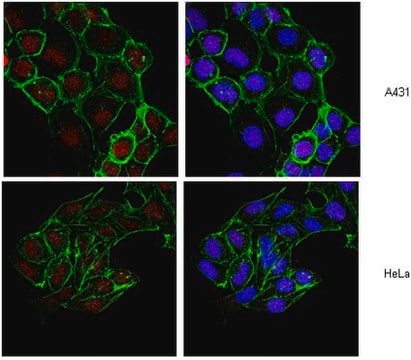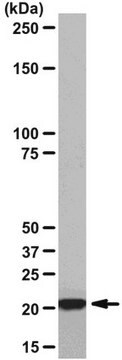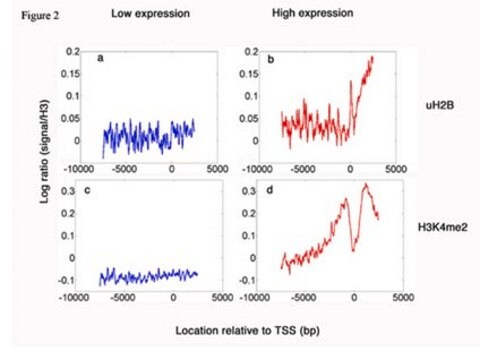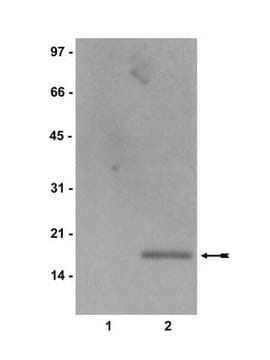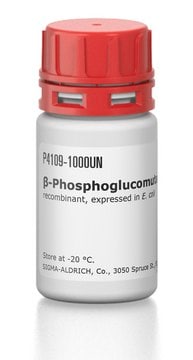07-371
Anti-Histone H2B Antibody
Upstate®, from rabbit
Synonym(s):
H2B, Histone H2B, H2B histone family, member Q, histone 2, H2be, histone cluster 2, H2be
About This Item
Recommended Products
biological source
rabbit
Quality Level
antibody form
purified antibody
antibody product type
primary antibodies
clone
polyclonal
species reactivity
human, chicken
species reactivity (predicted by homology)
yeast (based on 100% sequence homology), Xenopus (based on 100% sequence homology)
manufacturer/tradename
Upstate®
technique(s)
western blot: suitable
isotype
IgG
NCBI accession no.
UniProt accession no.
shipped in
dry ice
target post-translational modification
unmodified
Gene Information
Saccharomyces cerevisiae ... Htb2(852284)
human ... H2BC1(255626)
General description
Specificity
Immunogen
Application
Epigenetics & Nuclear Function
Histones
Quality
Western Blotting Analysis: 2 µg/mL of this antibody detected Histone H2B in Chicken Core Histone.
Target description
Linkage
Physical form
Storage and Stability
Analysis Note
Acid extract from either sodium butyrate or colcemid treated HeLa cells.
Other Notes
Legal Information
Disclaimer
Not finding the right product?
Try our Product Selector Tool.
recommended
Storage Class Code
10 - Combustible liquids
WGK
WGK 1
Certificates of Analysis (COA)
Search for Certificates of Analysis (COA) by entering the products Lot/Batch Number. Lot and Batch Numbers can be found on a product’s label following the words ‘Lot’ or ‘Batch’.
Already Own This Product?
Find documentation for the products that you have recently purchased in the Document Library.
Articles
Loading controls in western blotting application.
Our team of scientists has experience in all areas of research including Life Science, Material Science, Chemical Synthesis, Chromatography, Analytical and many others.
Contact Technical Service